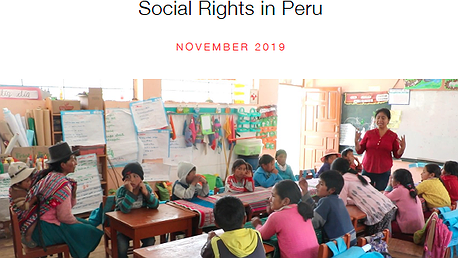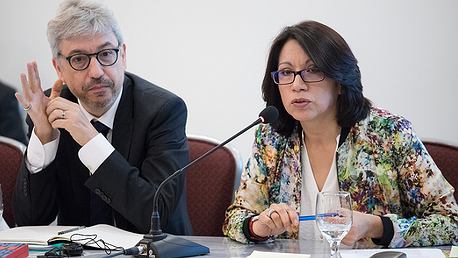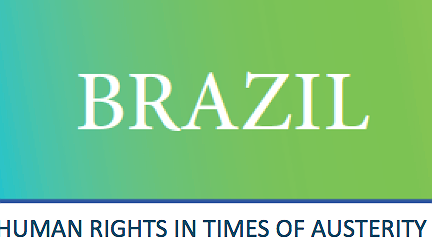Budgeting
Showing 1 to 15 of 15 results

Latin America: CESR course on budgets and human rights
Registration is open for CESR's course "Sin recursos no hay derechos" at the Latin American "School for Activists", organized by our partners ACIJ, Namati & Red de Empoderamiento Jurídico.

Fiscal Governance Under the Taliban: an analysis of the first Afghan national budget since the fall of the republic
Even after the Taliban takeover, Afghan researchers & civil society are continuing to scrutinize government: Read this guest blog post by our ally Ibrahim Khan, who looks at the implications of the recently approved budget for human rights in Afghanistan.

Fostering new approaches to monitor COVID recovery in MENA
We shared toolkits and methods for a rights-based monitoring of COVID-19 recovery with the Oxfam FAIR-EiU Knowledge Hub forum.

Sharing Tools to Evaluate the Impact of COVID-19 Recovery Measures
On March 5th, CESR led a skill-sharing session with members of EuroMed’s Economic and Social Rights Working Group, which explored ways to assess economic responses to COVID-19 through a human rights lens.

CESR Welcomes Scotland’s Commitment to Enshrining Human Rights Budgeting in Law
Scotland has achieved a historic milestone as its government announced new legislation that incorporates a set of human rights recommendations to guarantee adequate standards of living for all. CESR has been proud to support the work of the Scottish Human Rights Commission, a key institution in this accomplishment, that also mandates human rights are taken into account and respected during the budgetary process.

Confronting COVID: How Civil Society is Responding Across Countries | The Rights of Persons With Disabilities
Polly Meeks, Elizabeth Lockwood, and Mohammed Ali Loutfy discuss the dire impact of the pandemic on persons with disabilities and how to effectively uphold their rights.

Confronting COVID: How Civil Society is Responding Across Countries | New Zealand
Paul Hunt, Chief Human Rights Commissioner for Aotearoa New Zealand, narrates how the institution faced the human rights emergency brought on by the pandemic.

Confronting COVID: How Civil Society is Responding Across Countries | Mexico
Máximo Ernesto Jaramillo-Molina of Fundar, Center of Analysis and Research explains the policy responses needed to respond to the pandemic in Mexico.

A Marathon, Not a Sprint: Peru Needs Fiscal Reforms to Quell High COVID-19 Death Rate
Sergio Chaparro and Laura Adriaensens on Inter Press Service discuss how Peru has been one of the Latin American countries with the lowest investment in social policies, leading to deep disparities in the realization of social rights.

Confronting COVID: How Civil Society is Responding Across Countries | Scotland
Alison Hosie, of the Scottish Human Rights Commission, argues for using human rights principles to shape the Scottish budgetary process, in order to "build back better."

Confronting COVID: How Civil Society is Responding Across Countries | Argentina
Julieta Izcurdia of ACIJ argues for centering the rights of groups that suffer the most under COVID and for a fairer tax system in the long term.

Unequal and Unjust: the Human Rights Costs of Tax and Budget Decisions in Peru
A new report from CESR finds that Peru’s unjust tax and budget policies threaten quality education for the country’s Indigenous children and restrict access to prompt cancer treatment for some underserved patients.
UN submission says that all development is not human rights aligned
A recent joint submission by CESR and partners to the UN Human Rights Council objected to the suggestion that development always contributes to human rights realization.

Latin American countries must reform their fiscal policies to guarantee human rights
Unjust fiscal policy measures adopted by some Latin American countries strip basic social protections from populations, creating rights deficits and sowing unrest.

"Human Rights in Times of Austerity" covered in thirty Brazilian publications and websites
Media: New factsheet "Human Rights in Times of Austerity" received coverage from at least thirty Brazilian publications and websites in the past month.